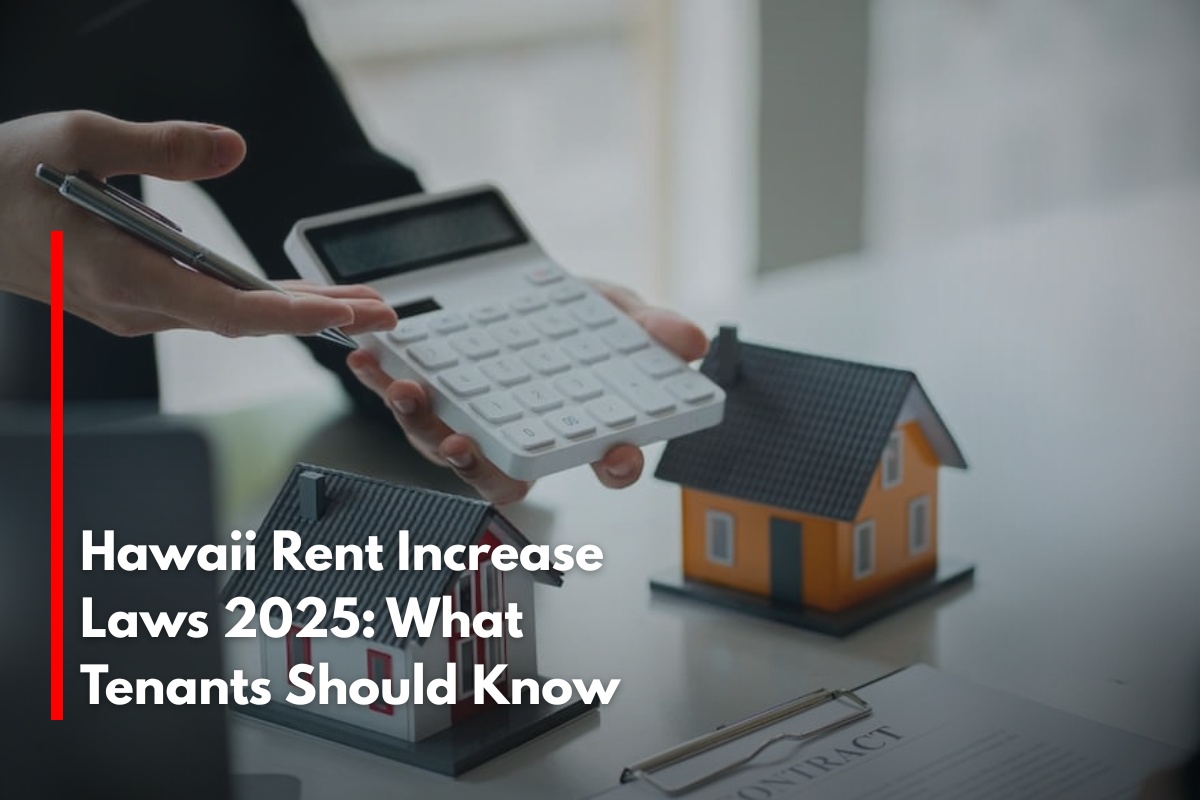In 2025, renters in Hawaii navigate a rental market without statewide rent control, but with several important legal protections governing rent increases. Understanding how and when landlords can raise rent, along with tenant rights, is crucial for maintaining stability and fairness in the rental relationship.
No Statewide Rent Control, But Notice Is Required
Hawaii does not have statewide rent control laws that limit how much landlords can increase rent annually. This means landlords generally have the freedom to raise rent to market rates or any amount they choose. However, there are clear rules landlords must follow before increasing rent.
For tenants on month-to-month leases, Hawaii law mandates a minimum 45-day written notice before a rent increase can take effect. For tenants with fixed-term leases, landlords cannot raise rent during the lease term unless the lease explicitly allows mid-term increases.
Rent adjustments must wait until lease renewal or lease expiration to be implemented. This notice requirement gives tenants adequate time to prepare for changes or seek alternate housing if needed.
Protections Against Illegal or Retaliatory Increases
Hawaii law also forbids rent increases that violate tenant protections such as:
Discrimination based on protected classes like race, religion, sex, familial status, or disability, in line with the Fair Housing Act.
Retaliation against tenants who assert their rights, such as requesting repairs or filing complaints about habitability.
Rent increases during declared states of emergency may be restricted or prohibited by law.
Any rent hikes found to be discriminatory or retaliatory can be challenged legally and deemed invalid.
Tenant Rights and Landlord Obligations
Tenants in Hawaii have the right to:
Advance written notice of any rent increase as required by law.
Safe, habitable housing that meets health and safety codes.
Be free from sudden or unfair rent hikes without proper notice.
Seek legal recourse if facing illegal rent increases or retaliatory actions.
Landlords are responsible for:
Providing at least 45 days’ written notice for month-to-month rent increases.
Respecting lease terms and not raising rent mid-lease unless allowed by contract.
Ensuring rental units meet habitability requirements and maintaining the property.
Avoiding discrimination and retaliation in rent setting and eviction practices.
Recent Legislative Developments Impacting Rent and Evictions
In 2025, new laws such as Act 202 introduced additional tenant protections, including mandatory mediation before eviction for nonpayment of rent. Though rent control remains absent, legislation aims to reduce arbitrary lease non-renewals without cause and promote housing stability.
Certain counties may explore or enact localized regulations, but tenants should review their lease agreements and consult local ordinances for any additional rules beyond state law.
Practical Tips for Tenants Facing Rent Increases
Carefully review your lease for any clauses about rent adjustments.
If you receive a rent increase notice, ensure it complies with the 45-day notice rule for month-to-month tenancies.
Know your rights to challenge increases that feel discriminatory or retaliatory.
Communicate with your landlord to understand the basis for the increase.
Seek advice from tenant rights organizations or legal counsel if needed.
While Hawaii lacks formal rent control caps, the requirement for adequate notice and protections against unfair or retaliatory hikes help tenants navigate rent increases with some security and predictability in 2025. Knowing your rights and responsibilities helps maintain a fair rental experience in the islands.
This balanced approach reflects Hawaii’s effort to protect renters while allowing landlords to respond to market conditions responsibly.
If you want to learn more, detailed information is available through the Hawaii Department of Commerce and Consumer Affairs and tenant advocacy groups.
Sources
[1] https://www.steadily.com/blog/how-much-can-a-landlord-raise-rent-in-hawaii
[2] https://www.doorloop.com/laws/hawaii-landlord-tenant-rights
[3] https://snappt.com/blog/hawaii-landlord-tenant-laws/
[4] https://governor.hawaii.gov/wp-content/uploads/2025/01/FAQ-Act-202-Eviction-Moratorium-Expiration_FINAL-2025-01-31.pdf
[5] https://www.hawaii.edu/fachousing/wp-content/uploads/sites/26/2025/05/rateincrease2025.pdf











